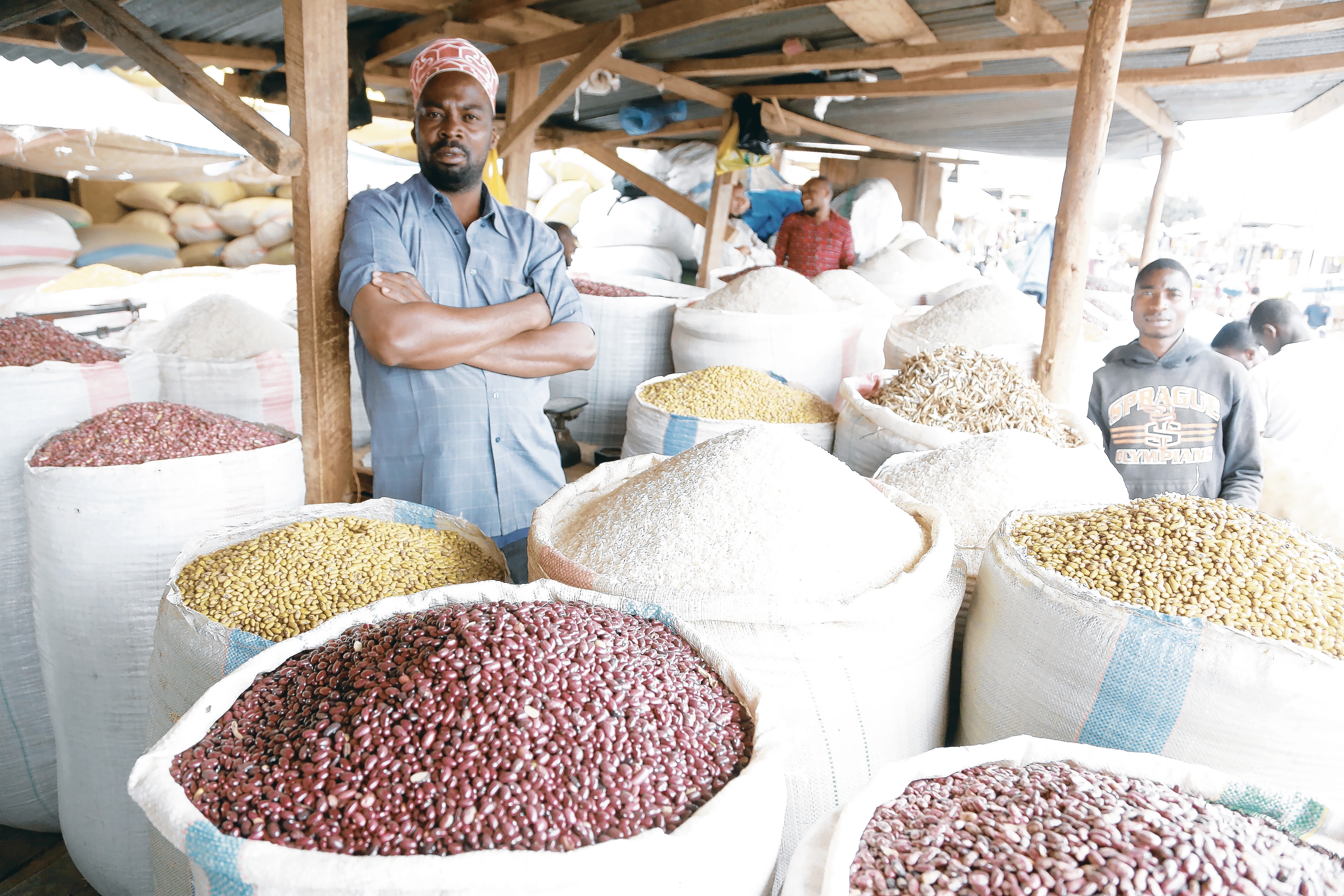OPINION: Use of improved seeds can transform farming

Eusebio Nguvila, a resident of Kidamali Village in Iringa Rural District, and his daughter admire part of tomato harvest from his farm based at the village located along the road to the Ruaha National Park early in the year. PHOTO | WARIDI STAFF
If Tanzania is to promote use of improved seeds, then it will be in a better position to bring about an agricultural revolution, which in turn would play a crucial role in industrialisation of the economy.
This piece highlights a testimony on exactly how use of improved seeds increased tomato yields of a resident of Kimadali Village in Iringa, hence improving his economic fortunes and that of his neighbours.
Eusebio Nguvila, 35, is a resident of Kidamali Village located some 45 kilometres west of Iringa Town along the road leading to the Ruaha National Park. He has been growing tomatoes for 16 years under both rain-fed and irrigated production systems.
In all these years, his tomato yields have only been modest, at most. He had little knowledge on the use of improved seeds and the application of other farm inputs, which could, otherwise, substantially increase his tomato yields and improve his income.
In 2017, Eusebio was one of the 36 farmers from Kilolo and Iringa District Council who were supported by the Water Resources Integration Development Initiative (Waridi) to take part in a three-day learning visit during the Zonal Nane Nane Agricultural Exhibitions in Mbeya from August 6 to 8, 2018.
“It was this opportunity that changed my economic life. I learnt on improved seeds and other farm inputs, eventually came to practice and teach my community on the acquired new knowledge,” he said.
The motivation
“When I came back from the Nane Nane event, I immediately started preparing the farmyard manure, soils and improving the pit for decomposing pig slurries at my homestead. Within two weeks I had a beautiful garden and several raised beds planted with amaranth, Chinese cabbage and pumpkins.
“I also made an Orange Fleshed Sweet Potato (OFSP) multiplication unit and planted maize and sunflower seeds I bought from the exhibitions.
“My neighbours became my vegetable market, but the Ruaha National Park staff started making pressing orders for vegetable and picking the vegetables at the roadside where my wife was vending.”
“I used to harvest 14 to 15 tonnes per acre during the days I planted local seed species and reproduced seeds which I extracted from my farmed tomatoes. The plants used to be very vulnerable to diseases and gave fruits of weak quality. This year is quite different. I expect a bumper harvest of 35 tonnes,” he said.
When asked about the benefits of having kitchen gardens his response was clear: “I sell vegetables 3 times a week at Sh2,400 to Sh3,600 and earn up Sh10,800. My market is expanding, and my neighbours now come to learn from me.
“I share the knowledge with the rest of the community. This is all thanks to Waridi. I’m grateful for the support I get from every staff and member of this project.”
Eusebio is one of Waridi’s farmer champions. He shares the knowledge he acquired during the Nane Nane event with fellow villagers and farmers.
“I first started to teach my neighbours on good agricultural practices, those applying the new skills have significantly improved their yields, increased income, hence changing their income status to the better,” he said.



